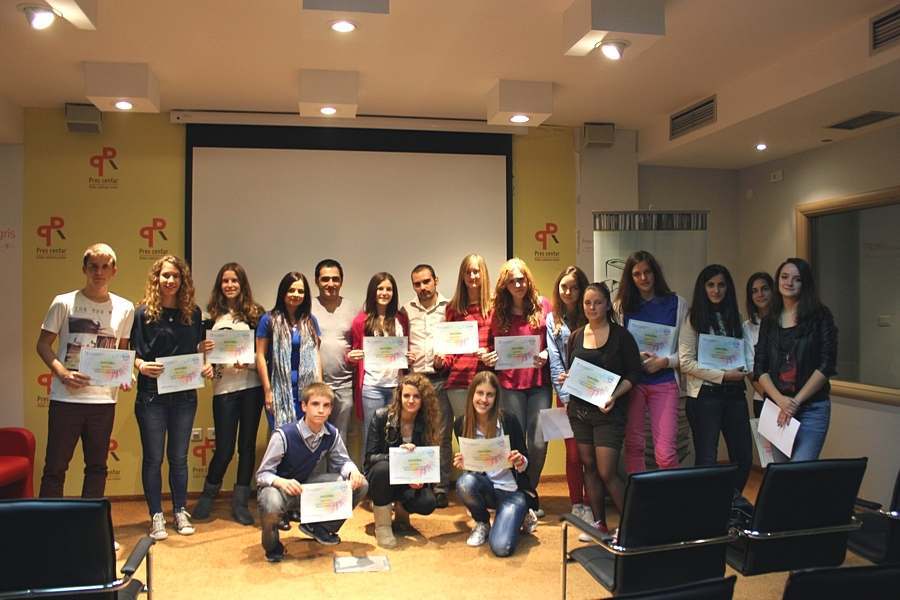By formal diploma ceremony in the PR Centre in Podgorica, XVIII generation of the Human Rights School, organized by the Centre for Civic Education (CCE), with the support of the Norwegian Ministry of Foreign Affairs, ended its programme.

Diplomas were handed to the participants by Daliborka ULJAREVIĆ, executive director of the CCE, who on that occasion noticed that “Montenegro is still not a society of a culture of human rights, and that one of the causes is in the present human rights violations, as well as in lack of adequate response of institutions and lack of knowledge of citizens about what rights they have and how to stand for them.” Further, she stated that “by human rights education Montenegro gets active citizens with developed democratic consciousness, who will contribute to limitation of arbitrariness of individuals and professionalism of institutions in charge for protection of human rights.”
In the fall semester, diploma of Human Rights School has acquired 20 high school students from all over Montenegro, as follows: Nikola Bošković, Maša Vujović, Jovana Perić, Marija Marković, Filip Đelević, Anja Avramović, Marija Boljević, Jelena Lalić, Ivo Tomašević, Marija Milikić, Nina Rašović, Milica Jovanović, Džana Mučević, Nikola Knežević, Dragan Miladinović, Itana Bulatović, Jovana Ivanović, Valentina Ostojić, Martina Ivanović, Lenka Mirković.
School was comprised by 3 modules in total of one intensive week during which participants, through numerous lectures, workshops, film screenings, panel discussions and visits to institutions, learned and discussed about various topics concerning human rights. The School was organized with support of the Norwegian Ministry of Foreign Affairs, through the regional project of human rights and active citizenship education in the Western Balkans.
Human rights school provides broad theoretical and practical knowledge on concept of human rights, it affirms the culture of human rights by inspiring and motivating people to stand for their rights, as well as for those who are not able to do that on their own and to empowers them to have more direct influence within society in future.
Continued interest that follows this programme from its establishment, but also the commitment of participants encourages and shows that there are young people who are willing to be socially engaged and actively participate in ongoing social processes.
Svetlana Pešić, Programme Associate
